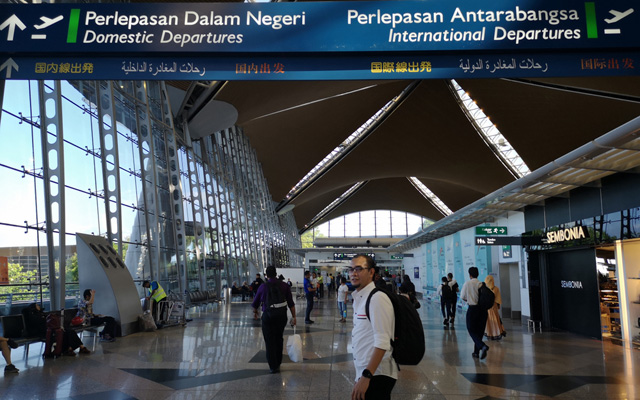
Malaysia’s Air Passenger Departure Levy, scheduled to come into force in July or after, will not benefit the inbound business events sector, as DMCs fear that it will make it more difficult to compete with regional destinations for business.
Arokia Das Anthony, director, Luxury Tours Malaysia, groused: “Why do we need to tax business and leisure travellers who have come to Malaysia and are spending money here? This will not incentivise them to choose Malaysia. We are already at a disadvantage to Thailand and Singapore as both are regional hubs with better flight connectivity. This departure levy will add on to (the disadvantage).”

“Most of my company’s inbound business events are from China and India, both price sensitive markets,” he added.
Similarly, Adam Kamal, general manager, Tour East Malaysia, lamented: “An additional US$10 can affect the decision of business event organisers when choosing a destination.”
Kamal said in addition to the departure levy, there is also a tourism tax that Malaysia has enforced. Previously, the travel industry believed that once the levy is implemented, the tourism tax will be abolished.
“However, that is not the case. Now there will be an additional charge involved, and that will be the deal breaker,” he pointed out.
To entice incentive groups to still choose Malaysia once the new tax is in place, Uzaidi Udanis, general manager of Eyes Holidays, said his company would have to “add more value in the form of activities”.
He compared the situation to Singapore, indicating that the city state was “expensive”, but incentive organisers were willing to travel there as there are many activities to do throughout the day.
When asked if the tax would impact outbound Malaysian incentives, Uzaidi said the effect would be non-existent as companies would still have to motivate their sales teams and dealers with incentive trips, regardless of the costs.
The Air Passenger Departure Levy to be imposed on departing passengers to overseas destinations, are on the basis of a two-tier rate structure. It starts at RM20 (US$4.80) per departing passenger to ASEAN member countries, and will cost RM40 per departing passenger to all other international destinations. This fee is in addition to the RM73 passenger service charge already imposed at airports.
The country’s Transport minister, Anthony Loke, has also defended the departure levy, saying that the money was needed to raise revenue, as the government could collect a few hundred million ringgit from this sector annually.




















